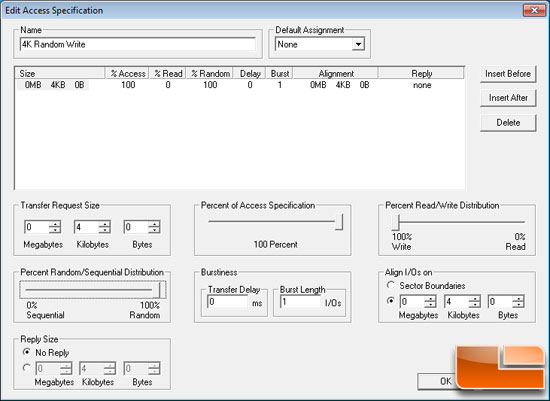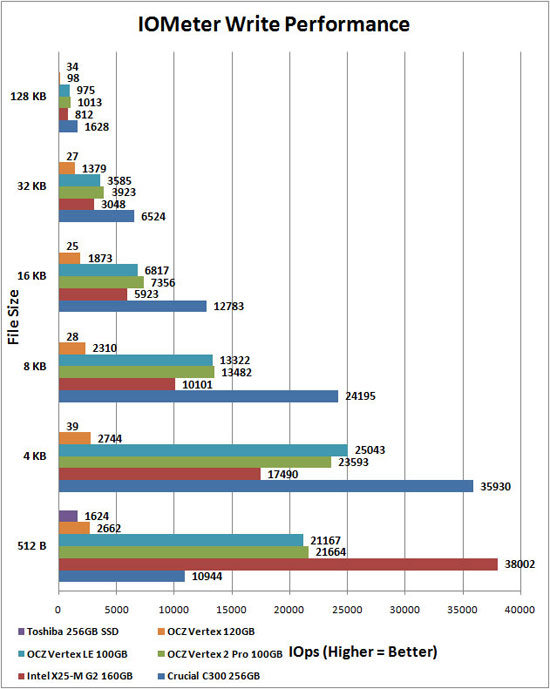Toshiba HG2 43nm 256GB Solid State Drive Review
IOMeter
Iometer is an I/O subsystem measurement and characterization tool for single and clustered systems. It was originally developed by the Intel Corporation and announced at the Intel Developers Forum (IDF) on February 17, 1998 – since then it got wide spread within the industry. Meanwhile Intel has discontinued work on Iometer and it was given to the Open Source Development Lab (OSDL). The project is now driven by an international group of individuals who are continuously improving, porting and extending the product.

Iometer version 2006.07.27 was used for testing and while we tested a dozen different file sizes we will be looking at the ones that are important to Windows users. In the Microsoft Windows operating systems many of the transactions are done at 512B/4kB/8kB/32kB/128kB, with the vast majority at 4kB, then 128kB / 512B, then the rest. Very few Windows applications use transfers larger than 128kB. We began the test by filling the drive completely full of data first and then testing 100% random IOPs in a 4KB region. We set the queue depth to 32 for this test.
Read Performance in IOps

Benchmark Results: IOMeter showed that the Toshiba HG2 256GB SSD doesn’t do too well, but remember that the Toshiba drives are optimized for a typical client PC application.
Write Performance in IOps

Benchmark Results: The write tests we performed pounded the Toshiba SSD into submission and made it beg for mercy as any file size larger than 512 Bytes the performance wasn’t that great. Our IOMeter testing is considered
by many companies more of an enterprise benchmark. As you can see from
the test results here you should think about using the Toshiba HG2 256GB
SSD in a file server that is doing a ton of read/write operations.

Comments are closed.